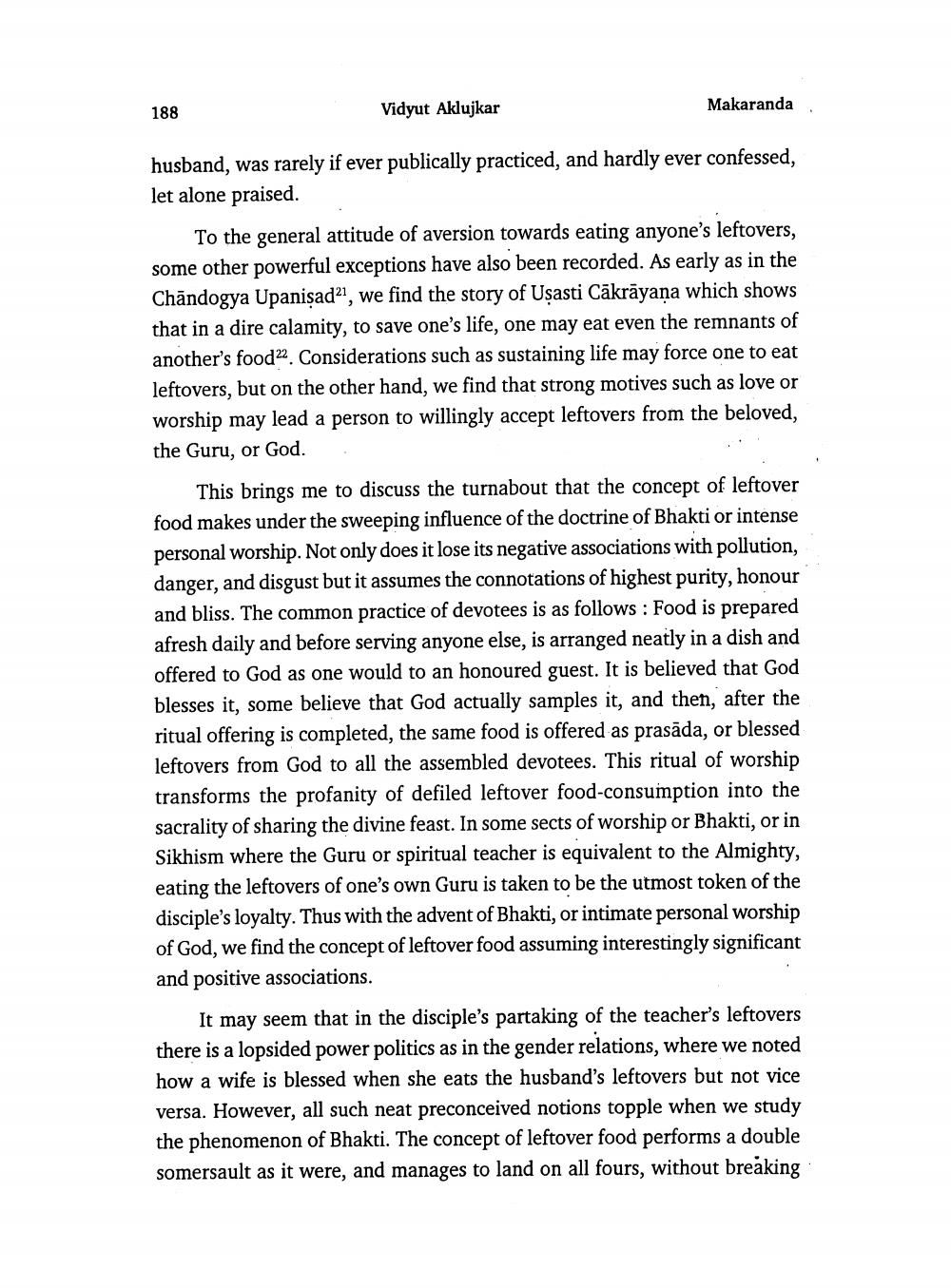________________
188
Vidyut Aklujkar
Makaranda
husband, was rarely if ever publically practiced, and hardly ever confessed, let alone praised.
To the general attitude of aversion towards eating anyone's leftovers, some other powerful exceptions have also been recorded. As early as in the Chāndogya Upanisada, we find the story of Usasti Cākrāyaṇa which shows that in a dire calamity, to save one's life, one may eat even the remnants of another's food22. Considerations such as sustaining life may force one to eat leftovers, but on the other hand, we find that strong motives such as love or worship may lead a person to willingly accept leftovers from the beloved, the Guru, or God.
This brings me to discuss the turnabout that the concept of leftover food makes under the sweeping influence of the doctrine of Bhakti or intense personal worship. Not only does it lose its negative associations with pollution, danger, and disgust but it assumes the connotations of highest purity, honour and bliss. The common practice of devotees is as follows: Food is prepared afresh daily and before serving anyone else, is arranged neatly in a dish and offered to God as one would to an honoured guest. It is believed that God blesses it, some believe that God actually samples it, and then, after the ritual offering is completed, the same food is offered as prasāda, or blessed leftovers from God to all the assembled devotees. This ritual of worship transforms the profanity of defiled leftover food-consumption into the sacrality of sharing the divine feast. In some sects of worship or Bhakti, or in Sikhism where the Guru or spiritual teacher is equivalent to the Almighty, eating the leftovers of one's own Guru is taken to be the utmost token of the disciple's loyalty. Thus with the advent of Bhakti, or intimate personal worship of God, we find the concept of leftover food assuming interestingly significant and positive associations.
It may seem that in the disciple's partaking of the teacher's leftovers there is a lopsided power politics as in the gender relations, where we noted how a wife is blessed when she eats the husband's leftovers but not vice versa. However, all such neat preconceived notions topple when we study the phenomenon of Bhakti. The concept of leftover food performs a double somersault as it were, and manages to land on all fours, without breaking




